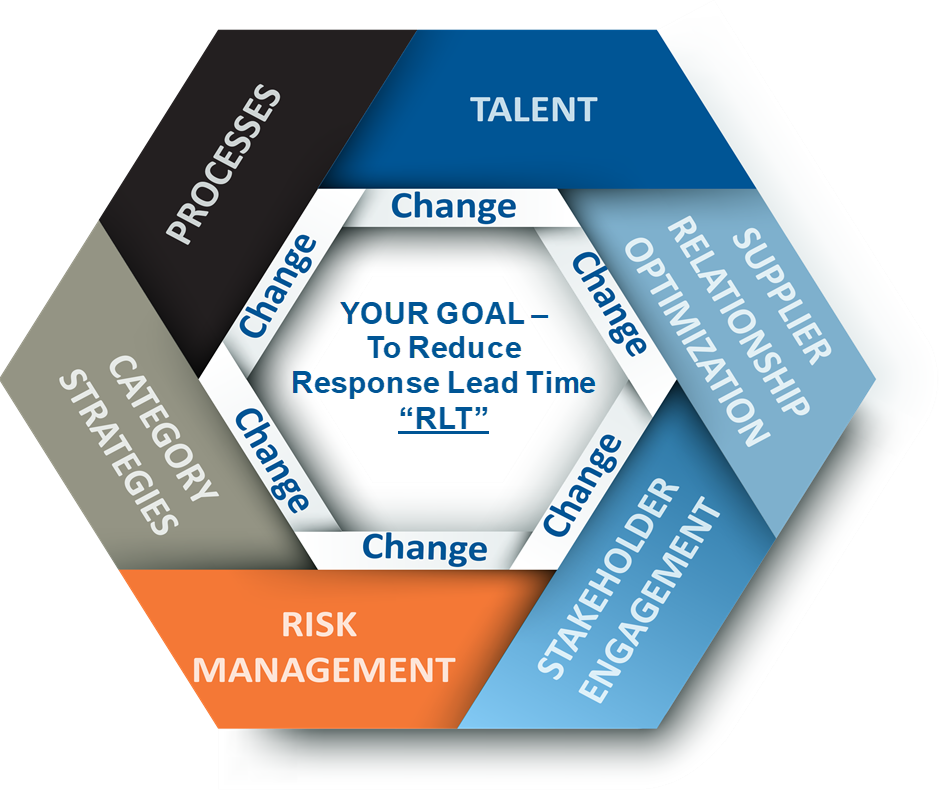It is of course a tragedy that is hard to watch and one that everyone thought was unfathomable – but here we are. Never underestimate man’s capacity to be cruel to fellow human beings. But watching what is happening in Ukraine does have implications for our profession. In a situation where supply chains were already near a breaking point or are already cracked, this tragedy does nothing but push them further and further towards breaking.
Here are but some of the areas that will be impacted immediately and some of these effects will be felt for a long time:
- Rail Transport
- Food and Drink Production
- Auto Production
- Gas Prices
- Energy Costs
- Wheat/Corn/Sunflower Oil
- Nickel/lithium Batteries
- Call Centers
- IT service centers
- Copper/Platinum
- Computer Chips
And on and on and on. The point is that whether you are responsible for acquisition of goods and services for your company, your job is about to get harder and in some cases impossible. Now before we write this off as some kind of black swan event that could not have been forecasted, let me use a slide from 2012:
Would You be Prepared If . . . . . .
- A major European port is shut down for weeks due to a strike, earthquake, hurricane or attack?
- A major tier two offshore supplier suddenly goes bankrupt or ceases operations altogether?
- The lead time – not to mention the costs – to obtain key commodity inputs triples?
- Energy and oil costs once again soar globally?
- Instability within Middle East expands and South America goes “red” and continues to nationalize private businesses?
- A major offshore supplier decides to enter your space and markets with a lower cost copycat product?
- Cost arbitrage changes making prior global sourcing / outsourcing decisions cost neutral or ineffective?
While some of the specifics may have changed, you would have to agree that if you classify these as major disruptions in the supply chain, that slide could be used today. Then it begs the question – why are we not better prepared for major disruptions? Why do we end up reacting to every disruption as a one-time event and not build an ongoing permanent capability to handle major disruptions?
You may remember that a couple of years ago, we put a name to that capability so that we could discuss it with our client executives and help them think through the challenges and figure out strategies to build that capability. We called it Response Lead Time (RLT) and offered u the following simple definition:
“The Elapsed Time it takes to react to and deal with Supply Chain Disruptions and get your business up and running at full capacity. Those Supply Chains that can react and recover quickest will have a competitive advantage”.
In fact, we have documented case studies from clients who were able to respond much faster during the early days of COVID and used that to gain market share from competitors and continue to use that message as part of their sales pitch.
And if you want to pay their much higher rates 😊, here is something from our colleagues:
“Companies must develop a rapid response to address current disruptions and strengthen operations in preparation for potential future value chain risks and a new normal”. Accenture, April 2020
Here is how we defined it for our clients then and this picture is still valid today:
While our prayers are with the people of Ukraine, this little anecdote may brighten your day:
Civilians such as Maksym Bozhok, 24, a procurement officer for a gas producer, have taken it upon themselves to put their skills to use where they are most needed.
“My job now consists of finding bullet proof vests, Kevlar and other items throughout the world and making sure we can get them delivered to Ukraine in the shortest time possible,” he said. “By doing this, I hope to save as many brave and fearless Ukrainian fighters as I can.” Slava Ukrayni


